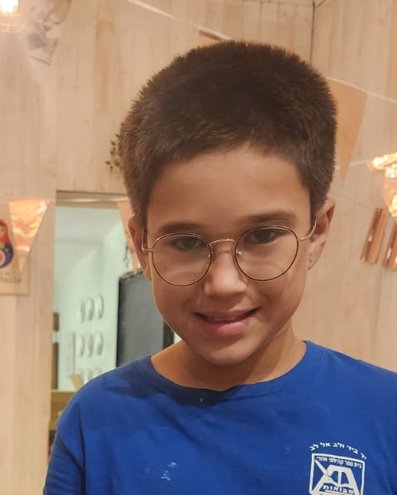"I Discovered the Words 'Sharon Little Little Pee' Written on the Board, and Then I Broke Down"
Since Sharon Lipkin-Ben Zichri can remember, she has carried the title "dwarf," but she always speaks "much more than her height." Now, happily married and a mother, she explains how she hasn't broken down along the way.
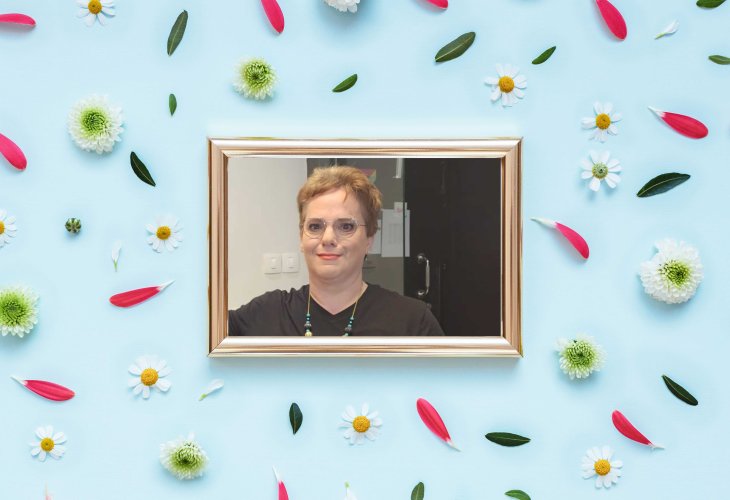 Sharon Lipkin-Ben Zichri
Sharon Lipkin-Ben Zichri"I am not limited; I am enhanced," says Sharon Lipkin-Ben Zichri with full conviction. She was born with mild dwarfism, known medically as achondroplasia. "During my mother's pregnancy, there was no indication of it, which makes sense as, 50 years ago, the diagnostic methods of today didn't exist. My mother received me with complete surprise, and as she recounts, she immediately recognized the prominent symptoms after I was born. My mother noticed that my arms and legs were unusually short and disproportionate to the rest of my body, and then the doctors explained the syndrome to her."
"Once, a doctor consulted with me about a family whose baby was diagnosed with the same syndrome. He asked what could be said to encourage them. I replied that I didn't know, because the matter wasn't up to me. After all, I was born into it. But one thing is clear to me: my journey has two sides – one with tears of pain and disappointment, and the other with tears of joy and success, and both cannot be separated."
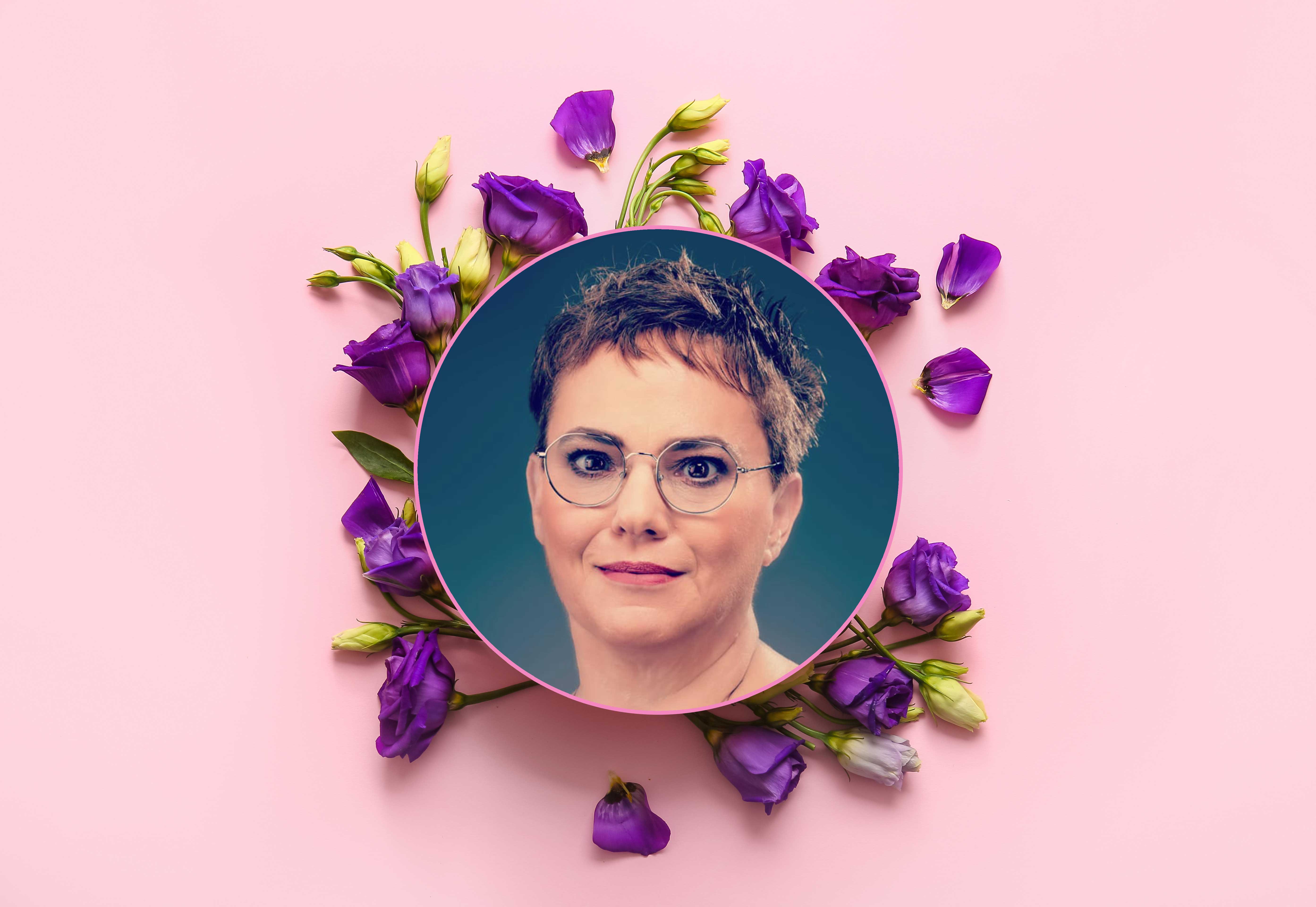
"I Decided Not to Give Up"
Sharon grew up around hospitals and treatments. "One of my earliest memories is being in a hospital, with my father holding me in his arms, while he and my mother searched for a particular person in the hospital. But I don't think I truly understood back then what was wrong with me. We lived in a village, and since I had grown up with the same kids since birth, they were used to my dwarfism and didn't consider it anything special. However, when I got to school, the teasing and taunting began. Children called me 'dwarf! shorty!' and I'd return home hurt, telling my mom. It's not for nothing that one of my least favorite stories as a kid was 'Snow White and the Seven Dwarfs.' To this day, I don't tell that story to my son."
According to Sharon, the teasing was nearly daily. "At home, I cried a lot, but I never let the other children see me cry," she recalls. "But there was one incident I'll never forget. I was in fourth grade, and I came back from a break to find 'Sharon Little Little Pee' written in white chalk all over the board. At that moment, I burst into tears and was shattered beyond description. Moments later, the teacher entered the classroom, saw me crying at my desk, and asked what had happened. I pointed to the board. Initially, the teacher asked who had written it. Then she did something seemingly simple yet monumental for me. She stood me in front of the entire class so I could share how I felt and what it did to me. Until then, I had hardly spoken about it, sharing my feelings only with my mother. Thanks to the teacher, it was the first time my classmates understood what I was going through, and from that day, they never hurt me again."
"My mother also had a very interesting reaction when I told her what happened in class. She gave me a light tap on the hand and called me 'stupid!' It hurt me a lot, and a few minutes later, she called me again and asked, 'What hurt more, the word or the hit?' I told her it was the word. This is how she taught me about the power of words and how I can use words and explanations to take myself to entirely different places. I grew up with a lot of strength from home and from within myself. It's true not everything is simple, and there are moments when I break down and need help. But generally, I am a strong person, and my life is good and beautiful."
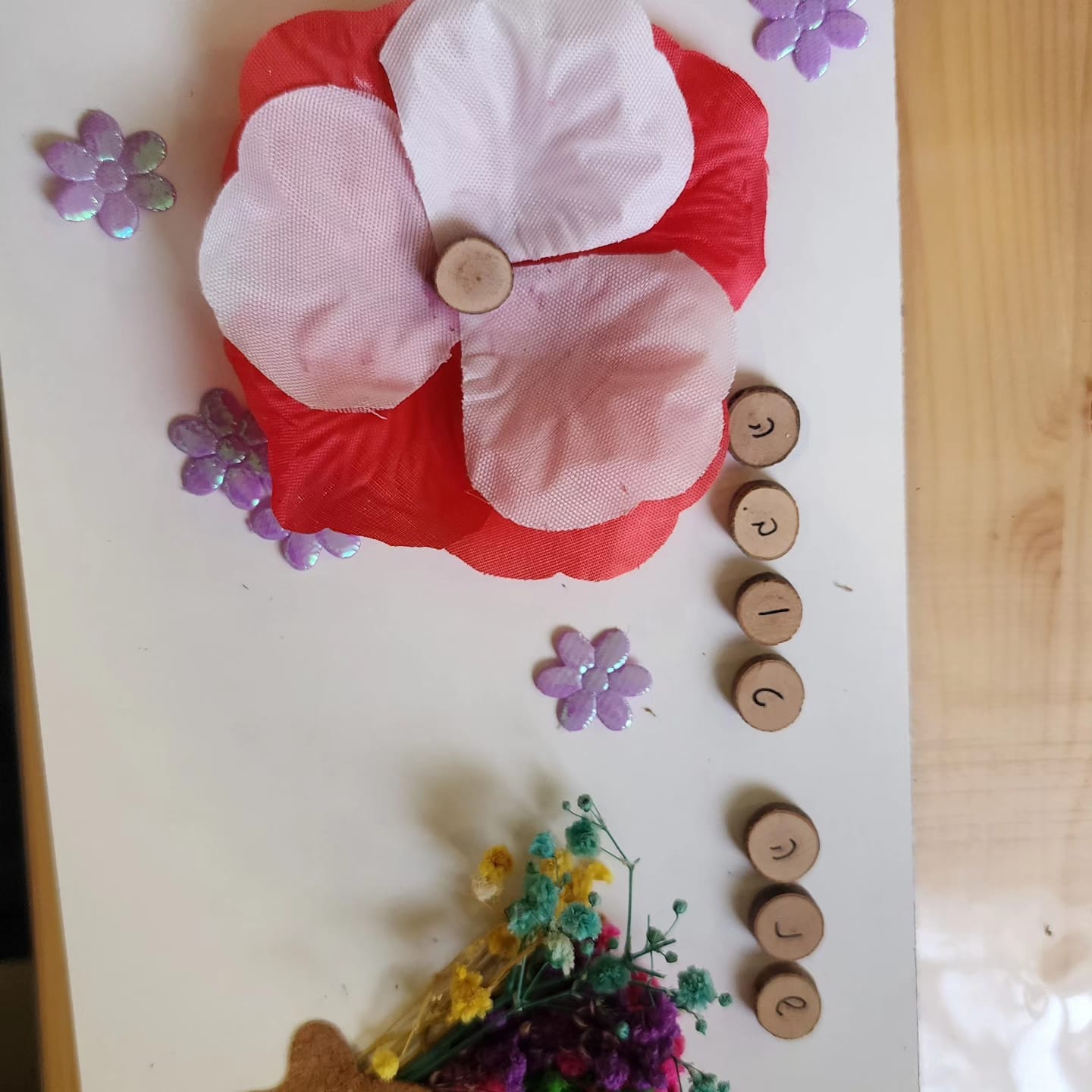
"I Don’t Wear Heels"
Does dwarfism affect other areas besides height?
"In recent years, we have discovered that one aspect of the syndrome is characterized by attention disorder. It's interesting because, since childhood, I've had attention disorder, and I'm not someone who can sit still all day, which affects many areas of my life. I never linked it to the syndrome, but now I understand that there might be a connection. Additionally, there are other areas where dwarfism might manifest, but since I have a relatively mild form, they aren't significant for me."
For Sharon, from a young age, her parents focused on giving her a few more centimeters of height. "When I was a small child, the awareness of surgeries and treatments in the field was mostly nonexistent, but my parents nearly moved mountains to find a treatment that could help me. We even went to Switzerland to inquire about a particular treatment. At 13, I was offered to undergo a major surgery to increase my height. My parents wanted me to do it, but I refused. The idea terrified me because I was explained that for a long period after the surgery I’d need to be in a wheelchair, receive injections and medications, and endure pain. I felt I couldn't go through all that. I wanted to be normal and live a normal life. Ultimately, what convinced me to undergo the surgery was talking to a boy my age who had done it. Thanks to him, I made the decision. There was also a surgeon at the hospital who spoke honestly, telling me, 'It’s a painful surgery with tears, difficulties, and many moments of breakdown, but in the end, you’ll be the height of your friends, and it will be worth it.' I was convinced. Only a few years ago did I muster the courage to send an email to that doctor, writing, 'You were right about everything except one thing – you promised I'd be the height of my friends, and that wasn’t true.'"
And what is your height?
"My current height is 1.53 meters, and by the way, I don’t wear high heels. I know there are healthy people at this height without the syndrome, but in my case, the anomaly is evident because of the short arms and legs."
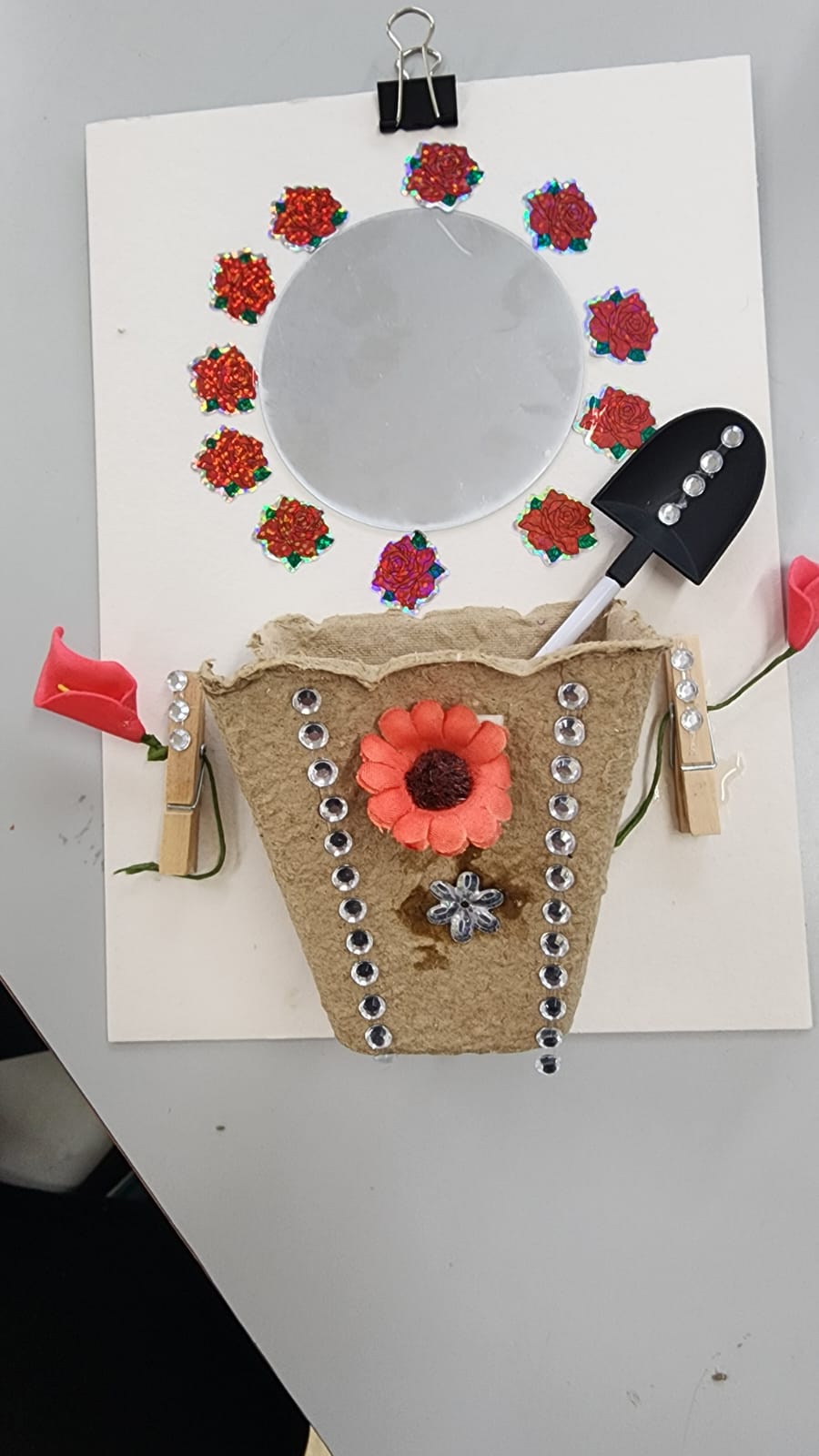
"Breaking Out of the Disability Zone"
Despite frequent hospitalizations, Sharon never abandoned her studies. "Though I missed many classes, I also invested and studied," she shared, "When I reached high school, I faced matriculation exams, and right then, I was told about another surgery. I found myself wondering how I could study and go through the surgery. Ultimately, the decision was to redo a class. That's how I did ninth grade twice, and it was one of the best decisions I ever made, as I eventually graduated with a full diploma of 31 units, which is more than required. I remember in the end of eleventh grade, the teacher told me there's no way she would let me take the math matriculation exam, as my grade was 33%. But I decided not to give up. That summer, my mother traveled abroad and invited me to join her, but I refused. I spent the entire vacation studying, and in the end, not only did I take the exam, but I scored 90%. As Einstein said, 'To do something that hasn’t happened, you need to do something that hasn’t been done.' Or as I say: 'For many things in life, you need to break out of the comfort zone of your disability.' And by the way, I'm not just referring to physically disabled people, but to anyone facing challenges."
Although Sharon's arms are short, they create a lot, whether in crafting workshops she conducts for seniors and individuals with special needs, or in everything she creates for her home. "I'm an artist and work a lot with recycled materials," she states, "I love creating and make things out of almost anything possible." Additionally, she works as a mentor at a club in Kiryat Malachi, conducts story theater in kindergartens, and gives lectures about her life's story.
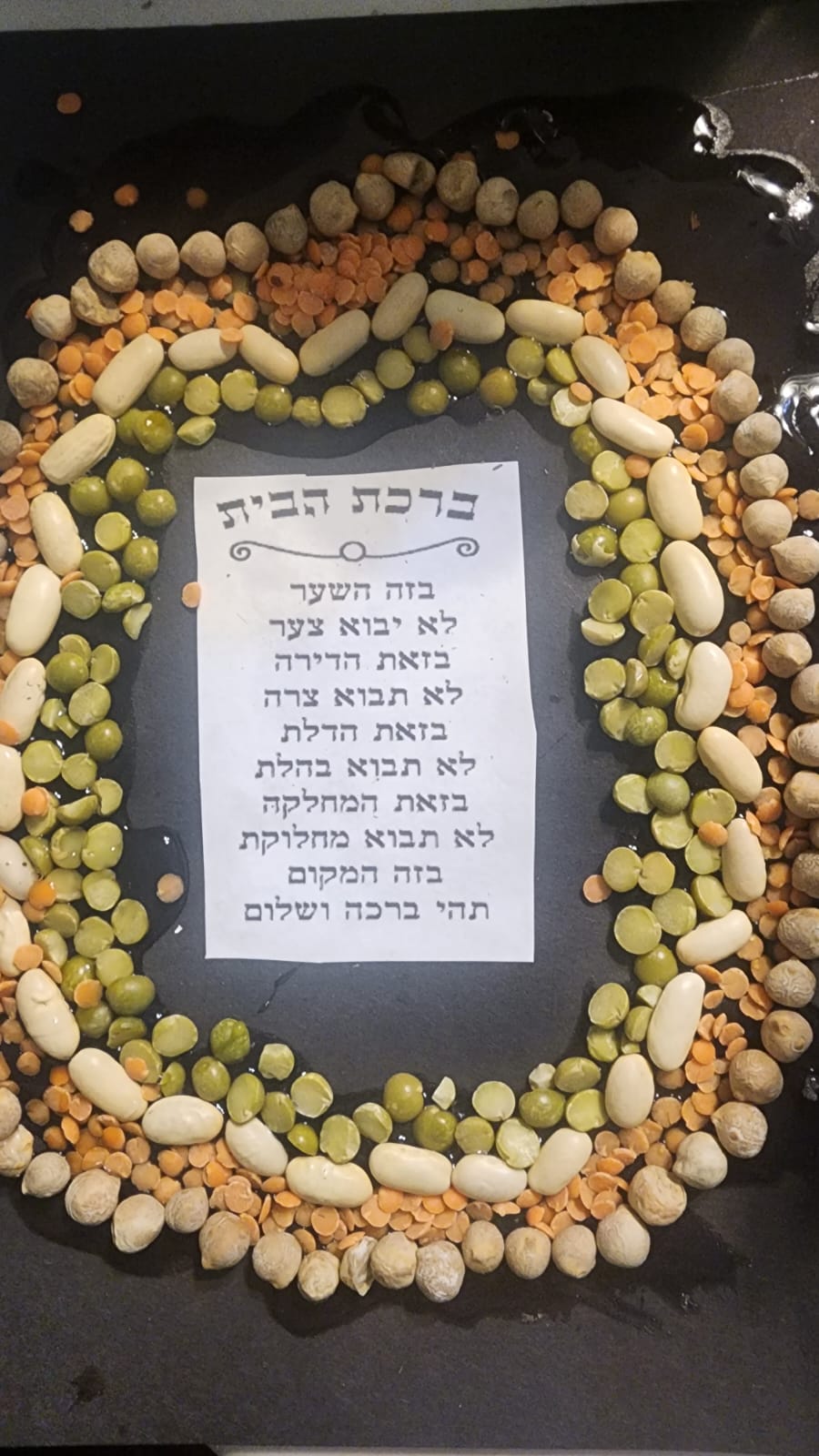
"The struggle doesn’t cease," she honestly shares, "Even now, approaching 50, there are still challenges and unpleasant encounters, but I've learned to overcome and move on. About twenty years ago, my syndrome posed a particular challenge, and in response, I decided to strengthen myself spiritually. I took a series of lessons on the subject, and one thing I learned is that the soul knows its resilience even before birth, and if it uses that for the world's benefit, it's a privilege. Consequently, I learned to thank the syndrome for carrying me through life, and I say this earnestly and sincerely."
Sharon is now married to her husband (who is 1.80 meters tall) and is a mother to a nine-year-old son. "My child is very aware of what I go through. He occasionally has questions and shows interest. One day, I overheard him talking to a friend, saying, 'On the outside, we're different, but inside we're all the same.' After the friend left, I asked him in what context he said that, and my son replied, 'I told him that when he asked why you're short.' It moved me deeply because I never gave him that explanation; it came from him. I remembered that when I was a child, I placed a note in the Western Wall asking G-d to make me tall, and now I thought that perhaps G-d didn’t hear my prayer exactly the way I asked, but he certainly understood the spirit of it and gave me such a happy life. I am only grateful for it every day."
